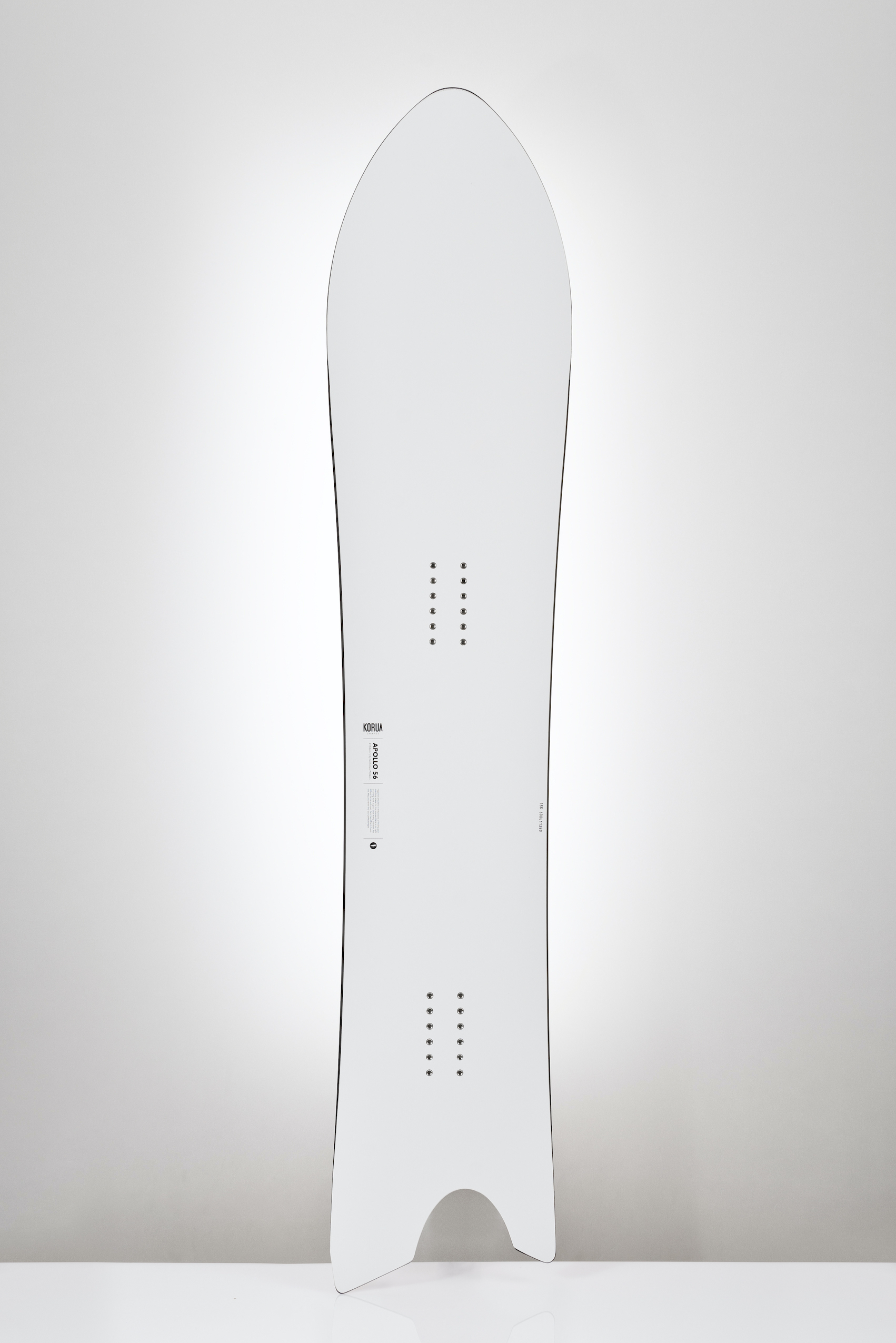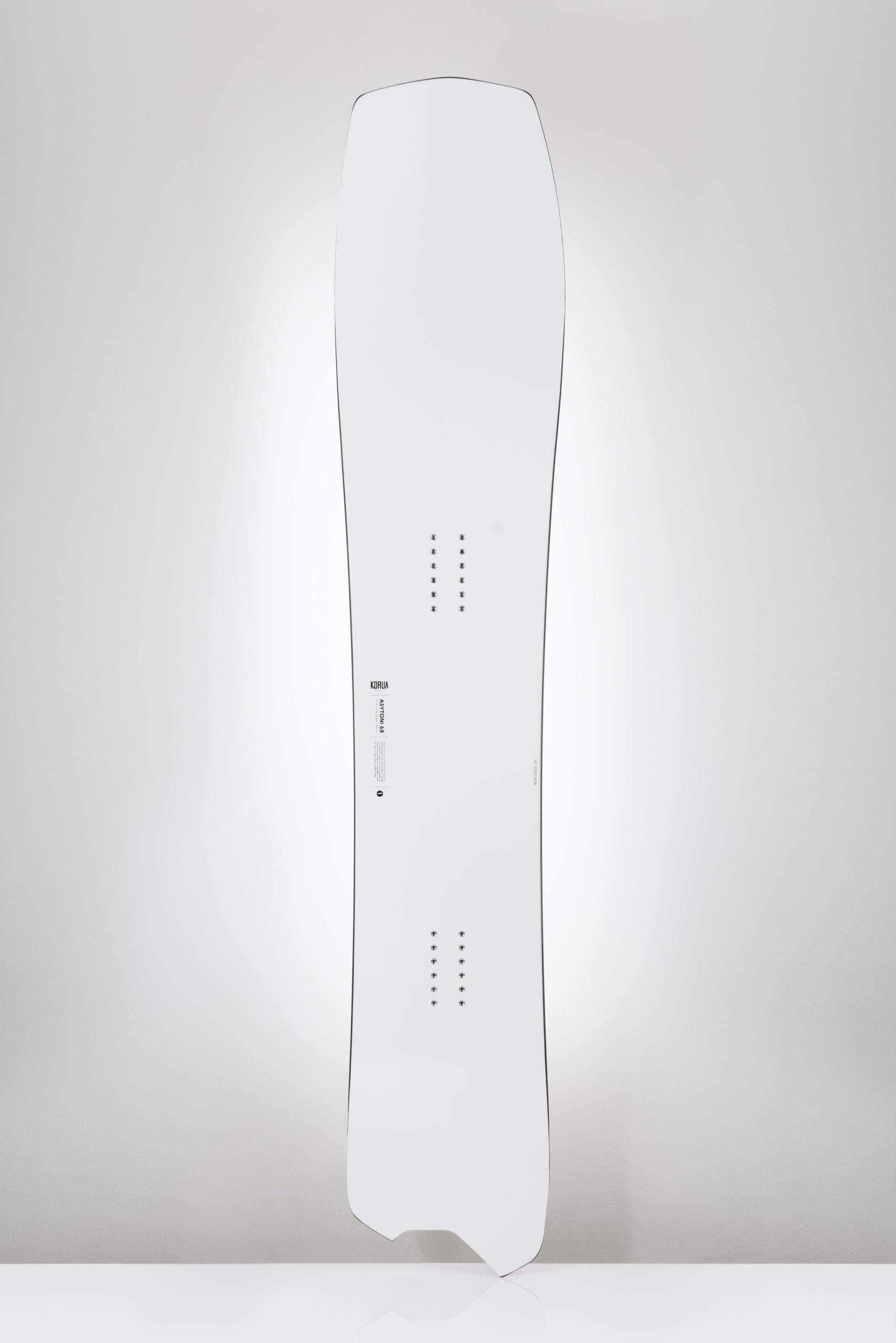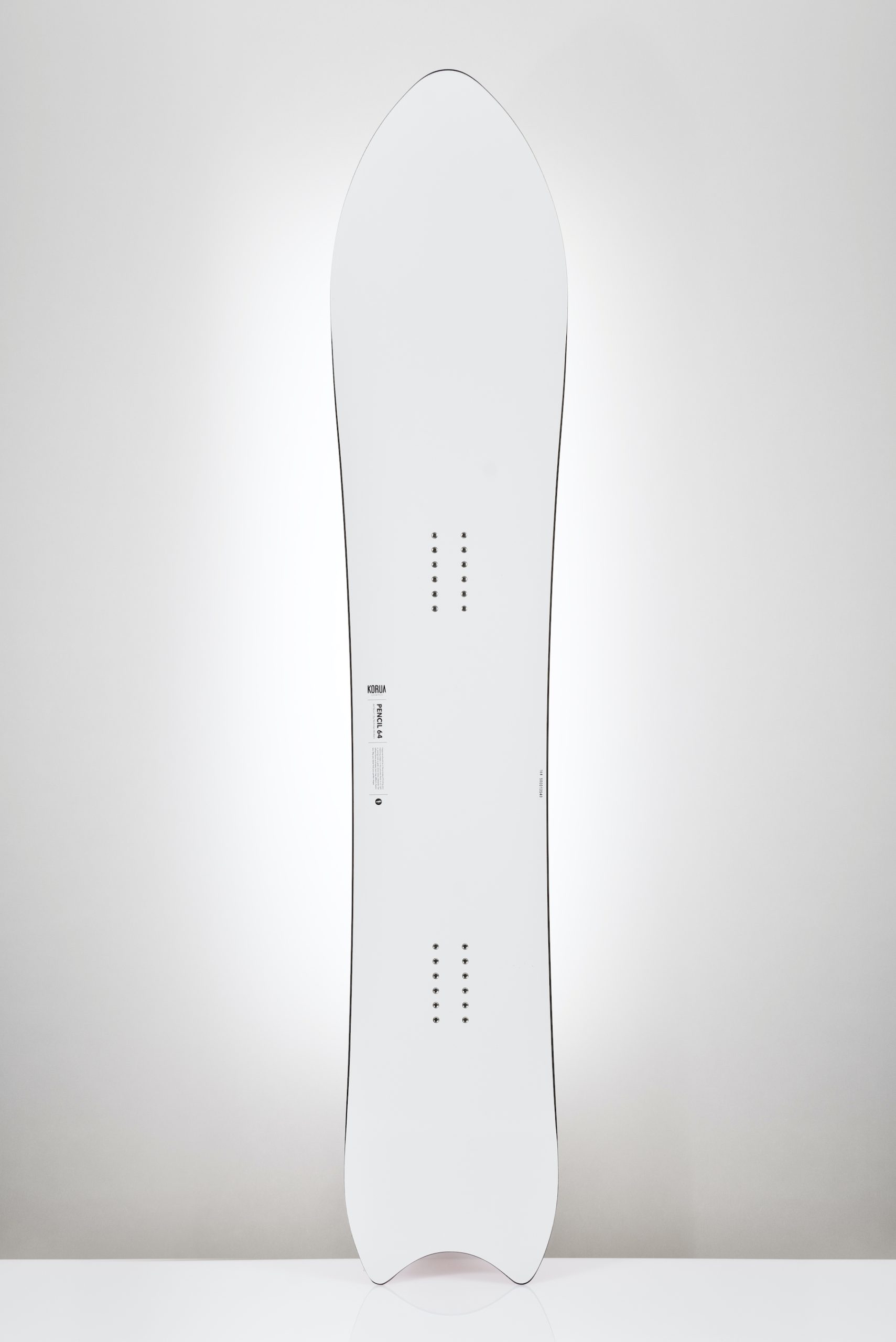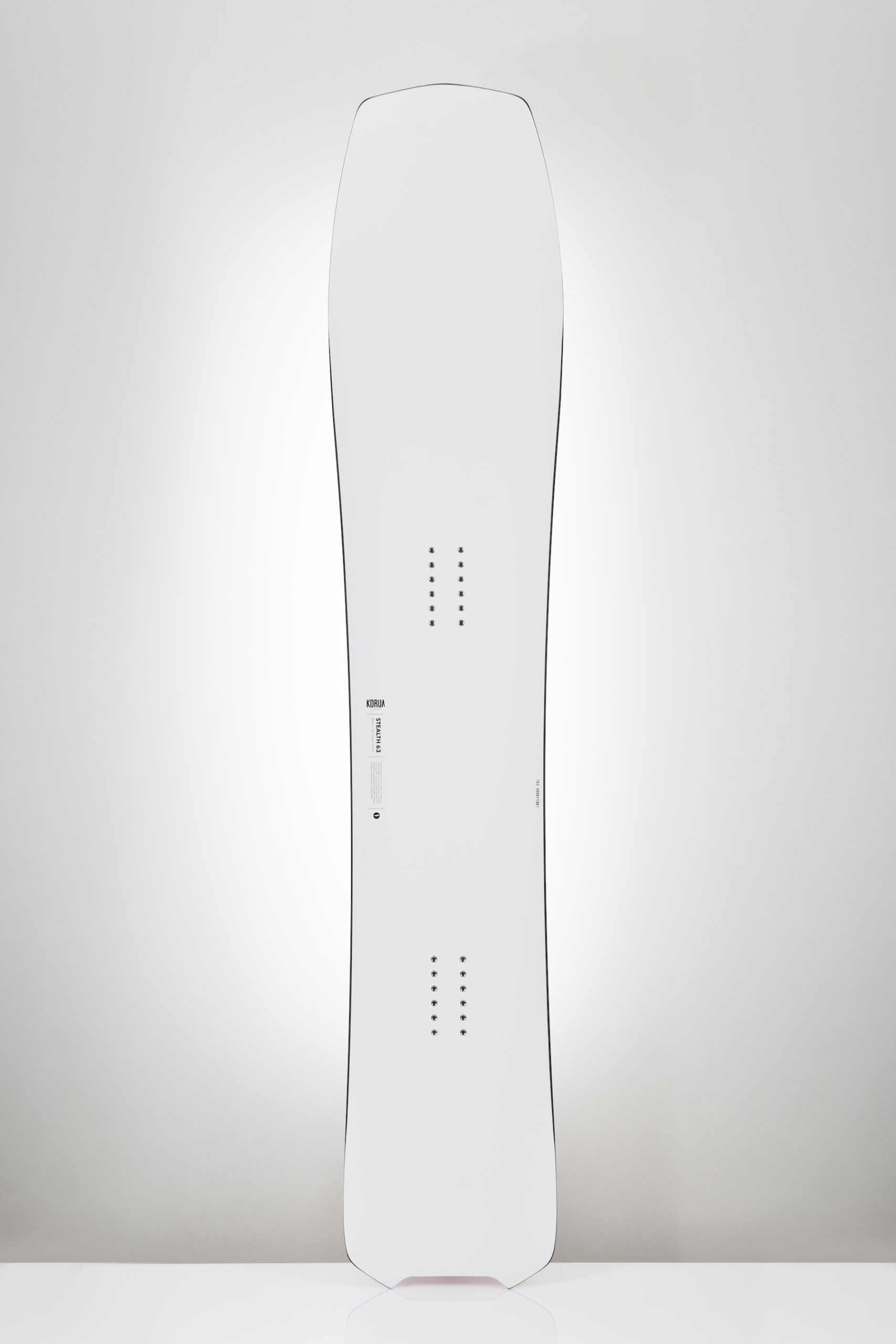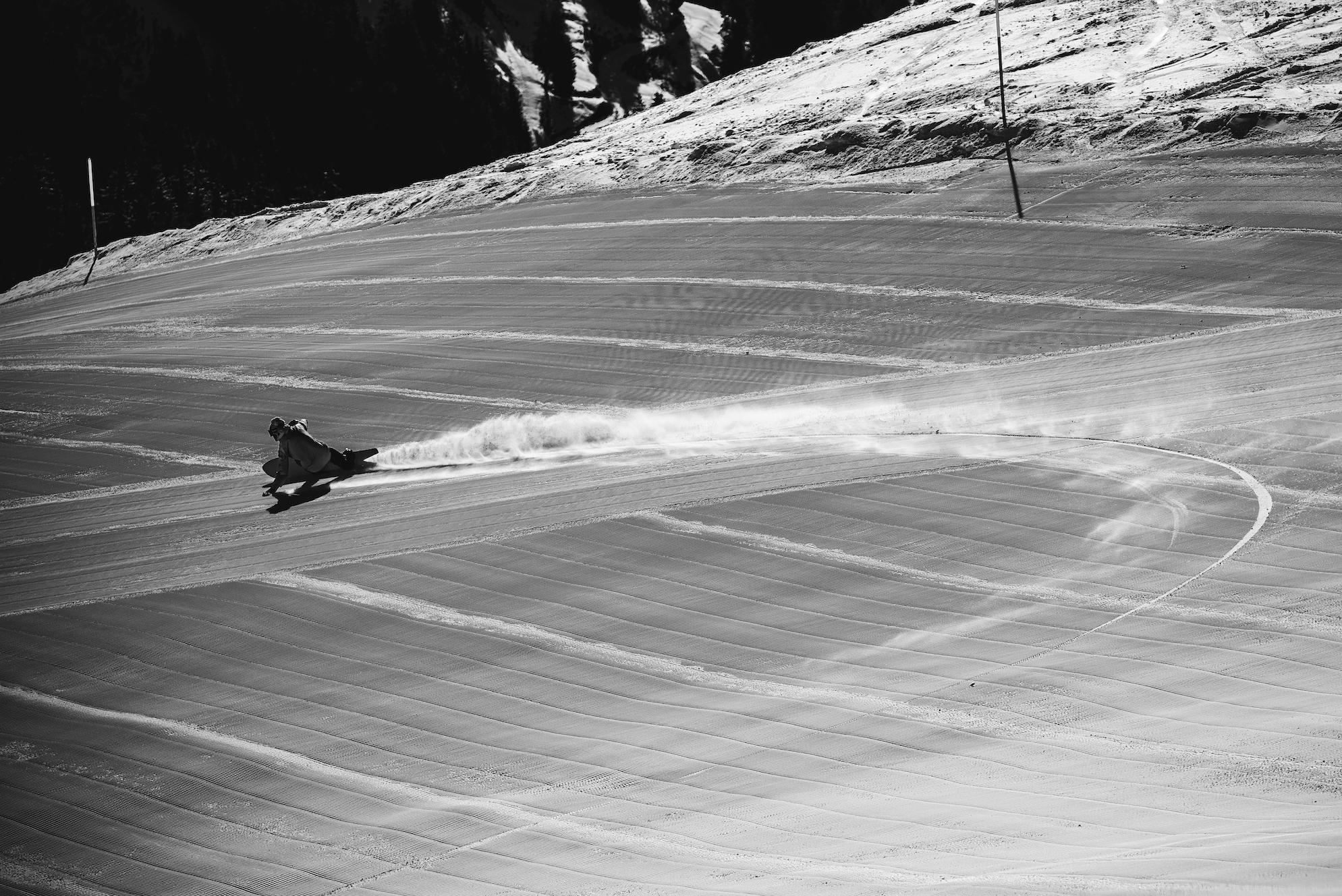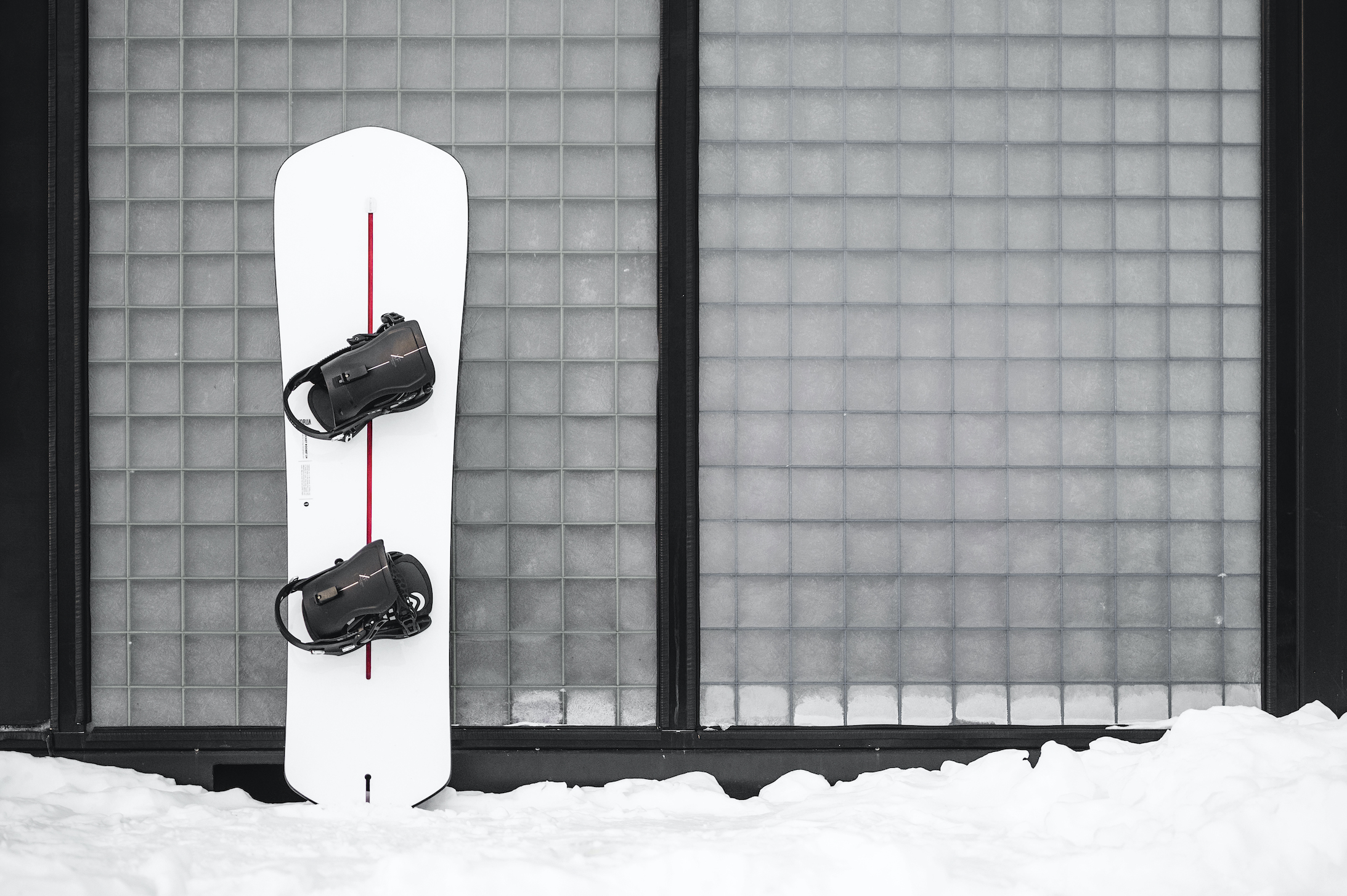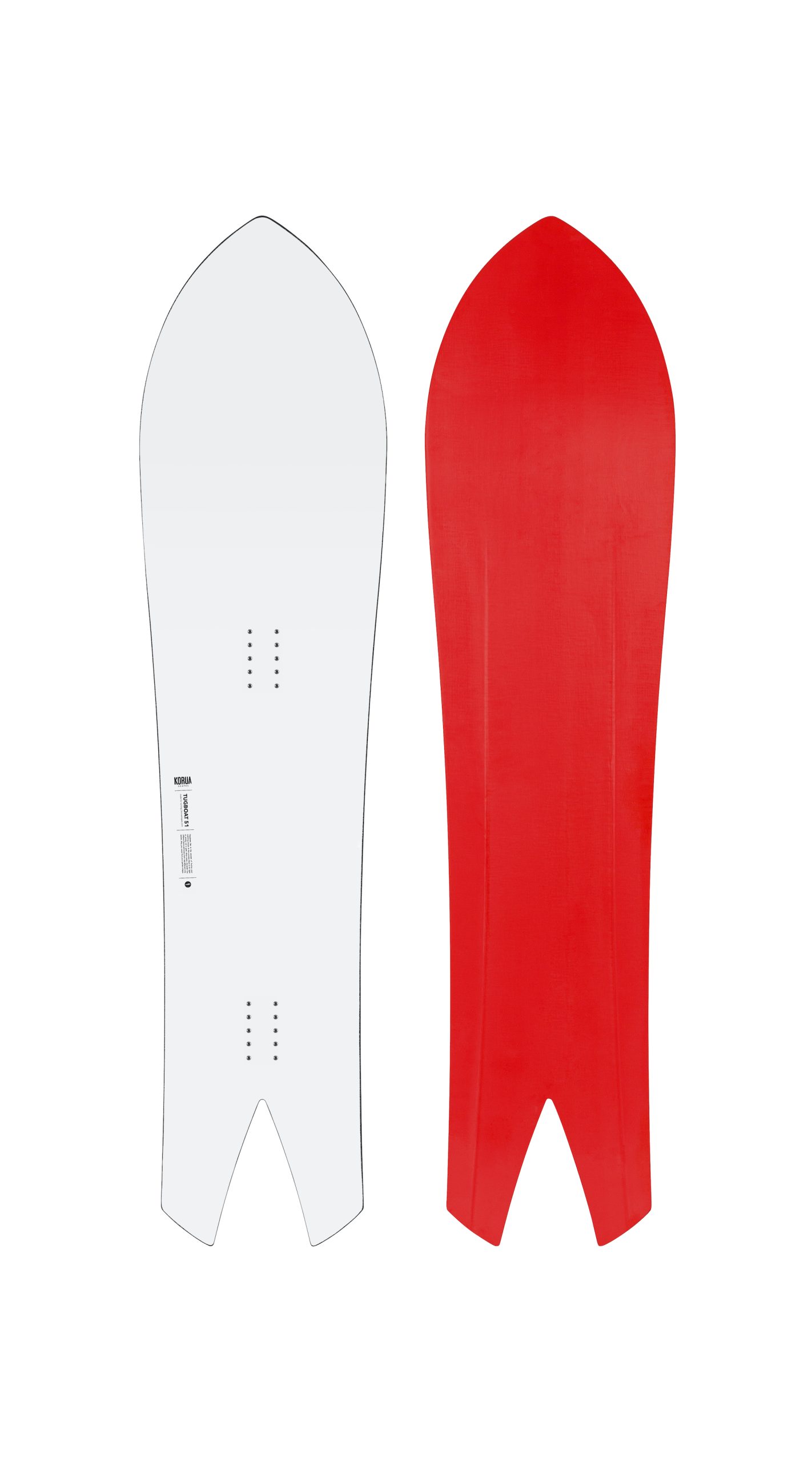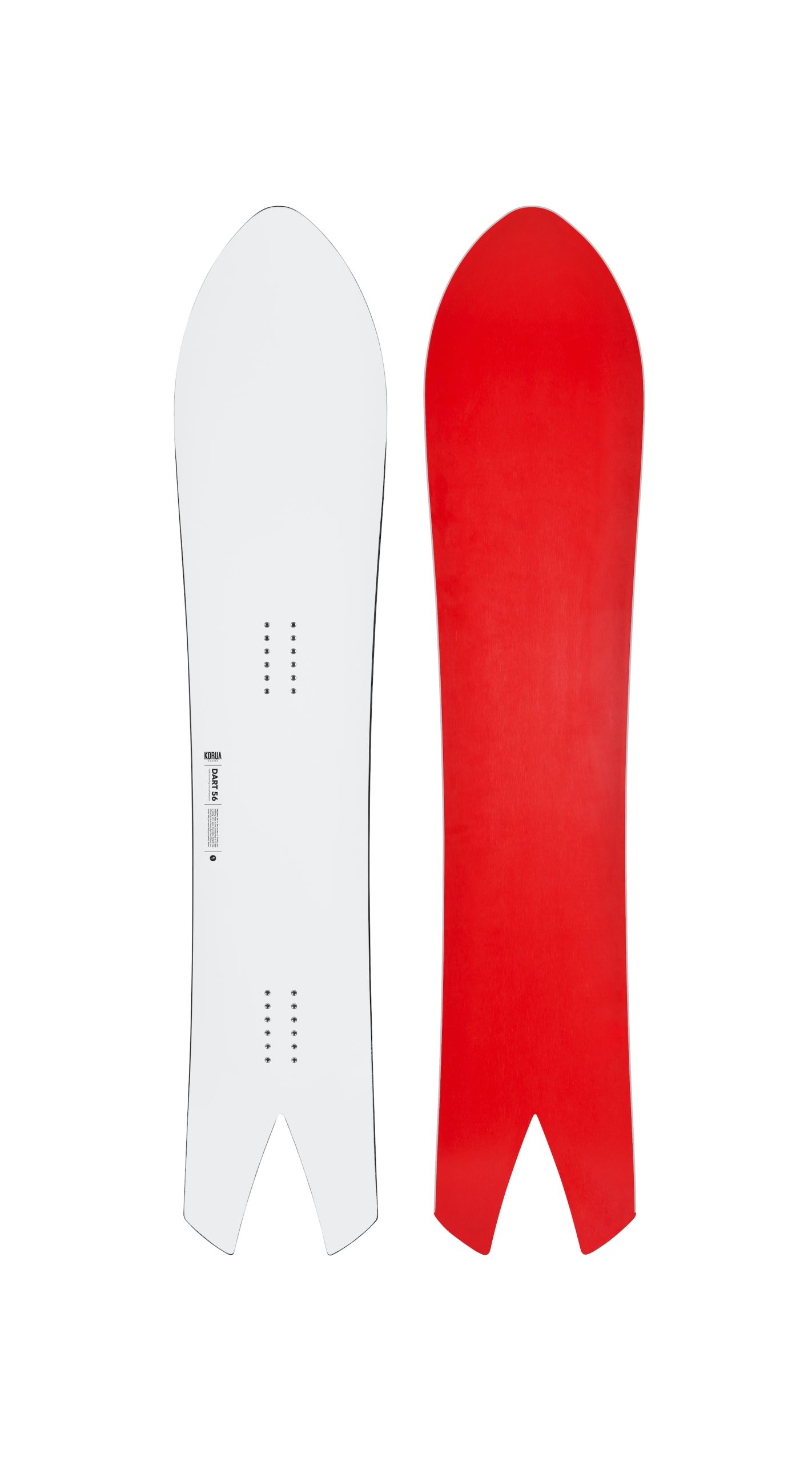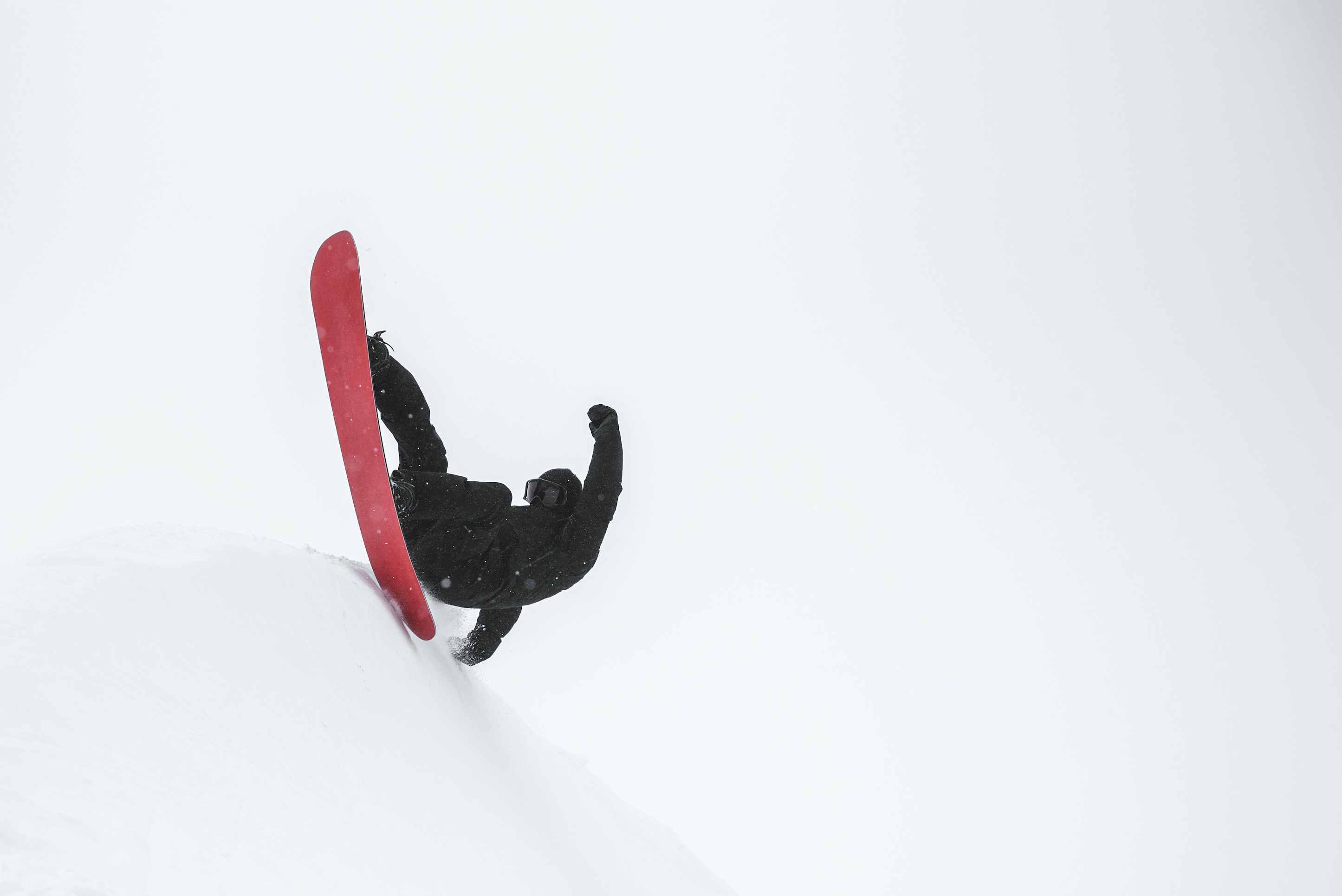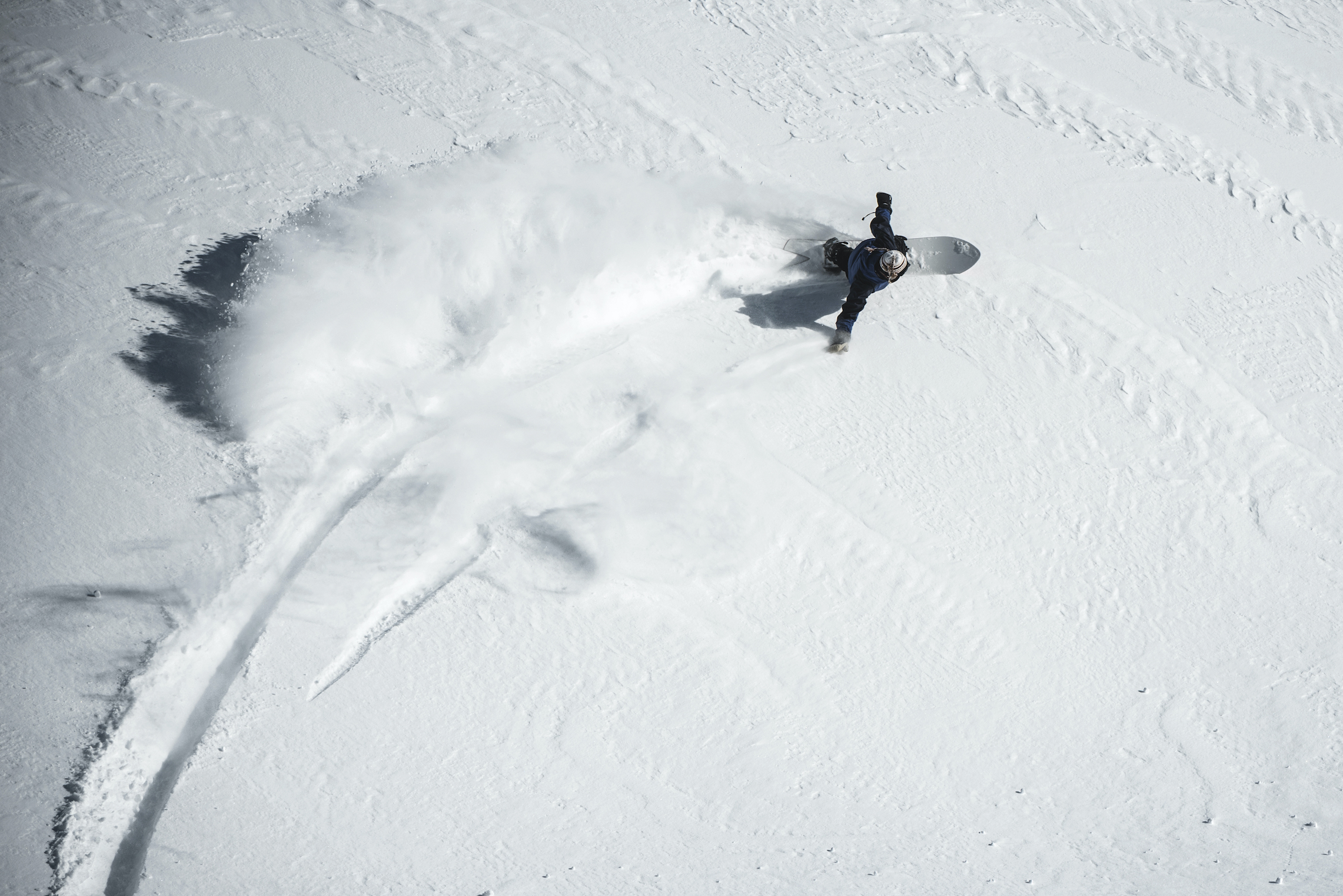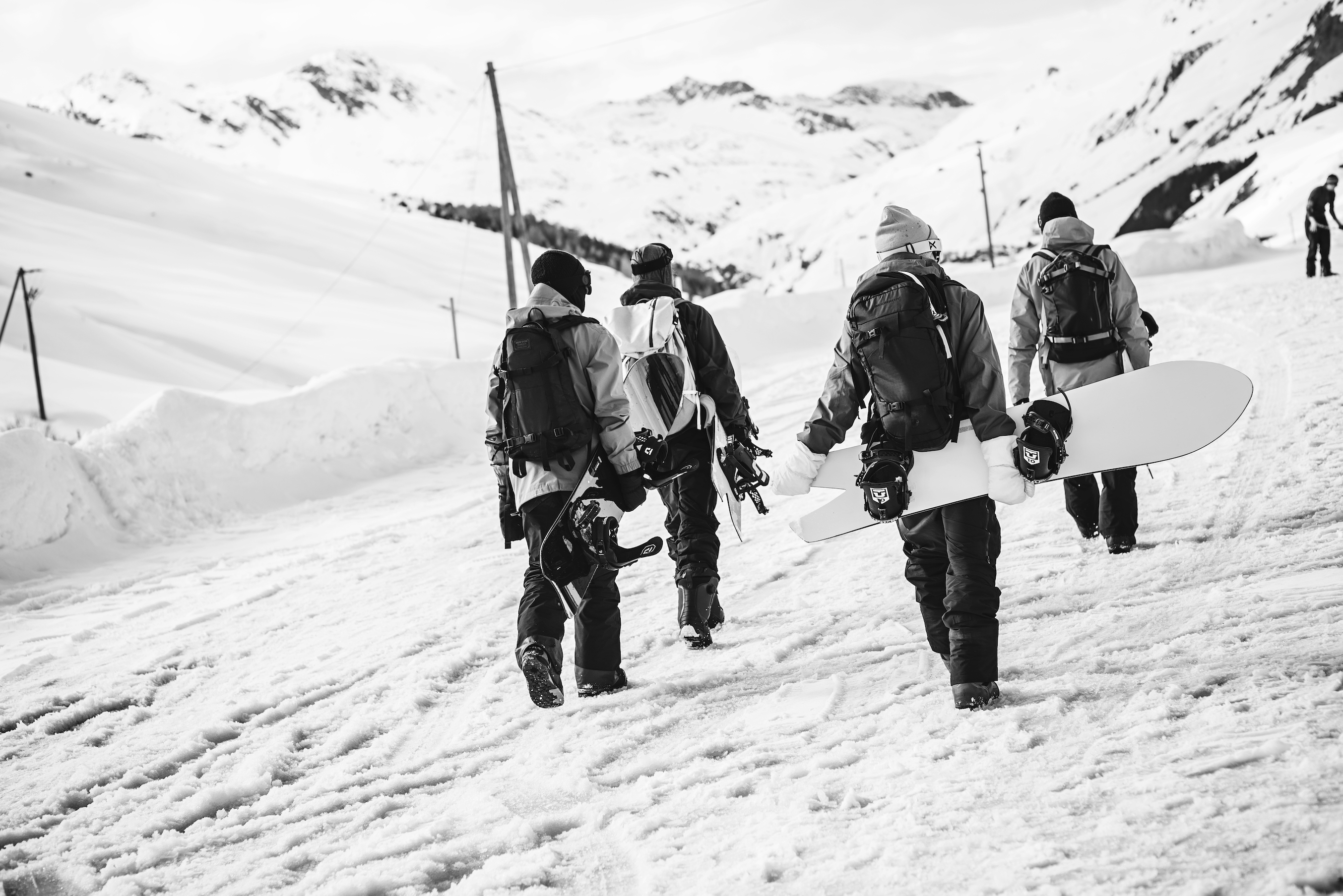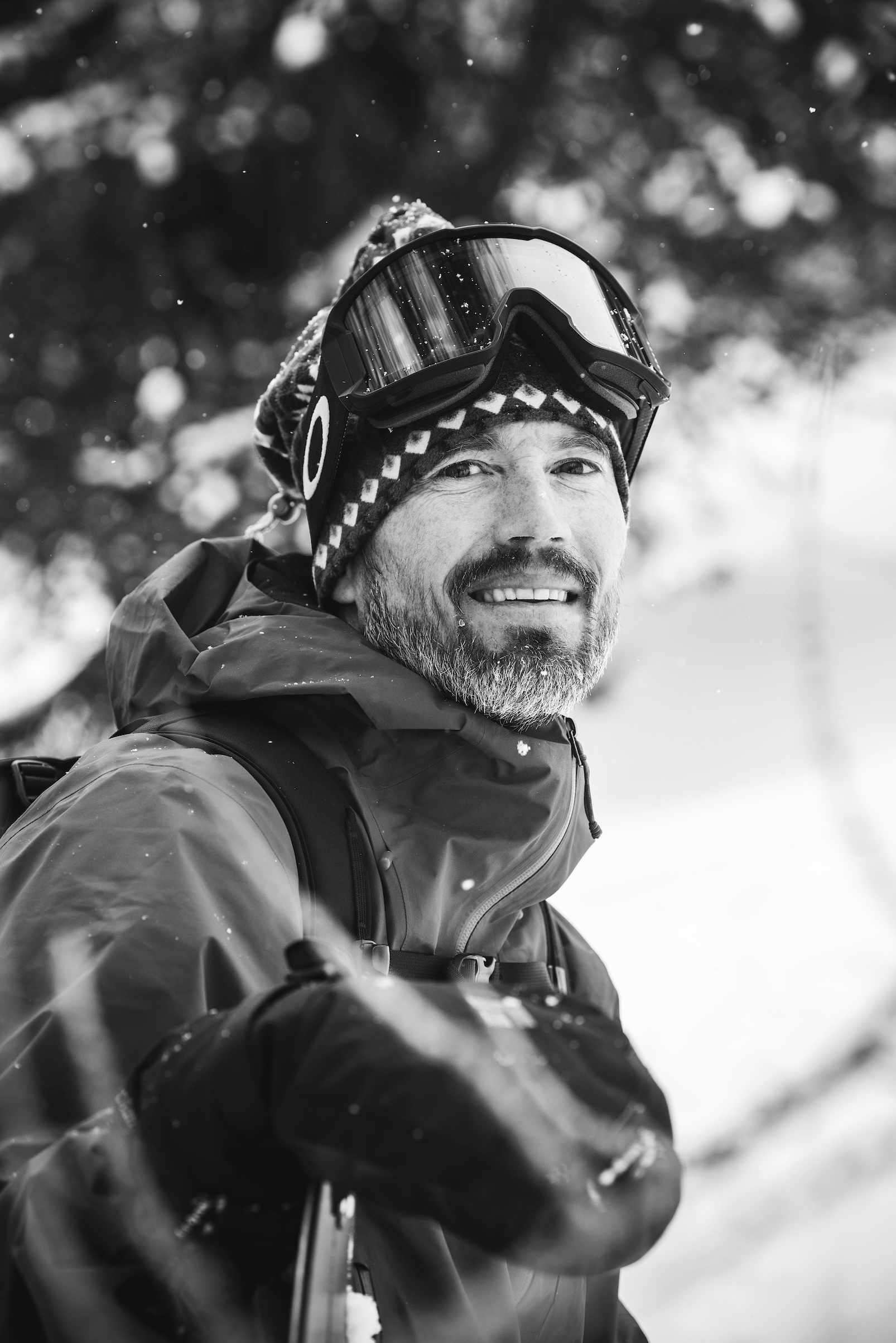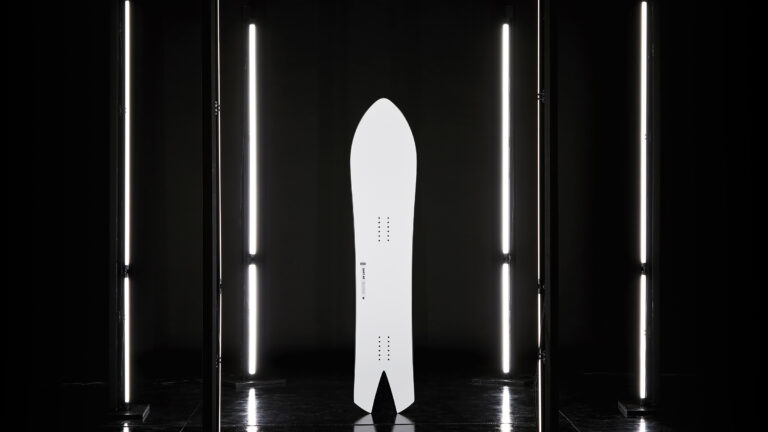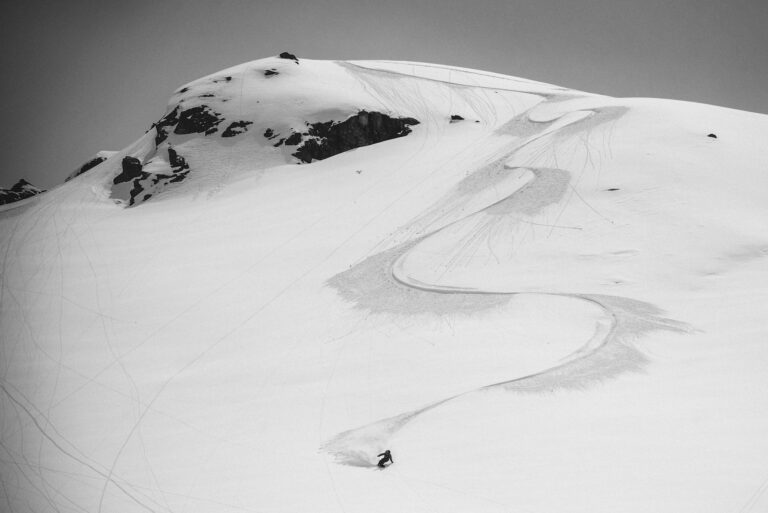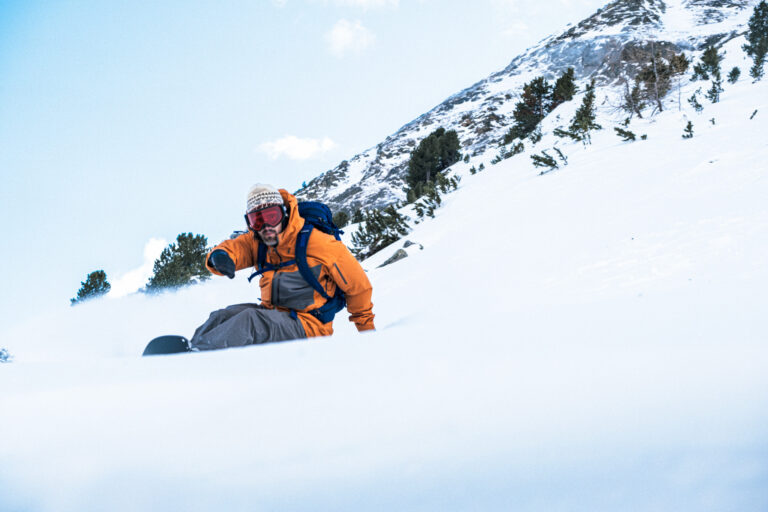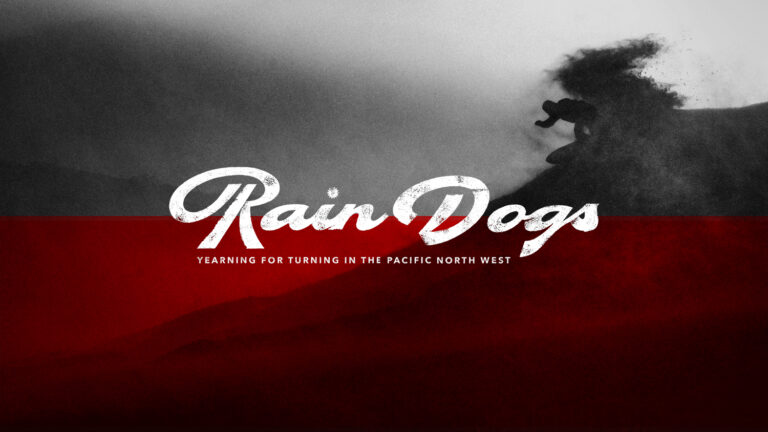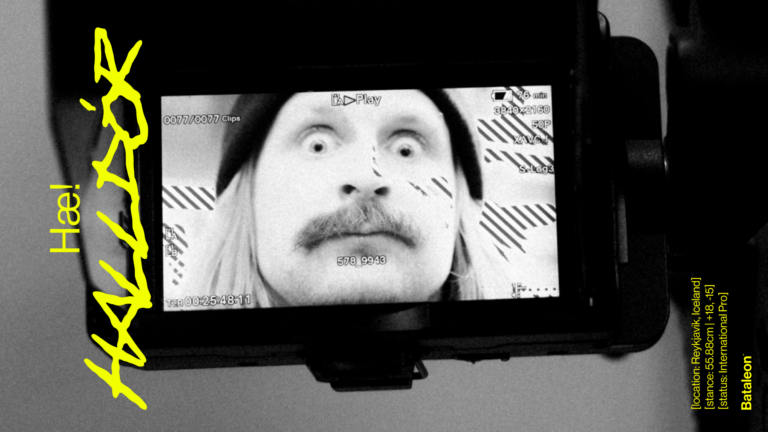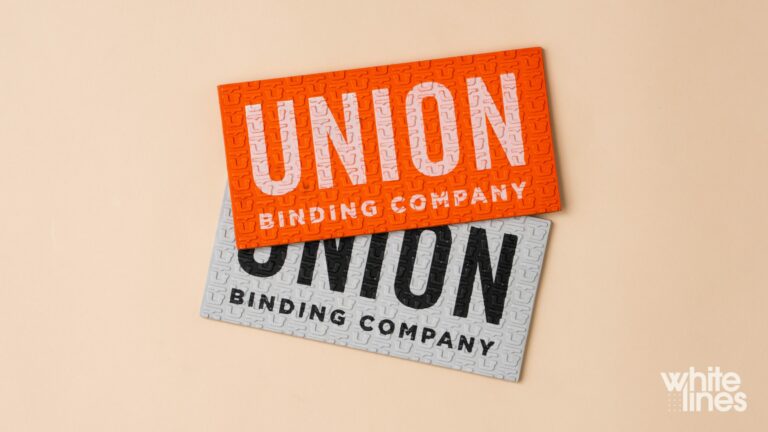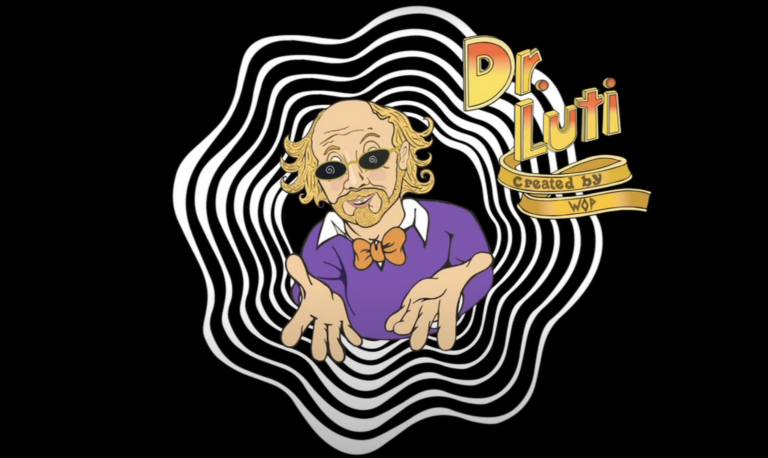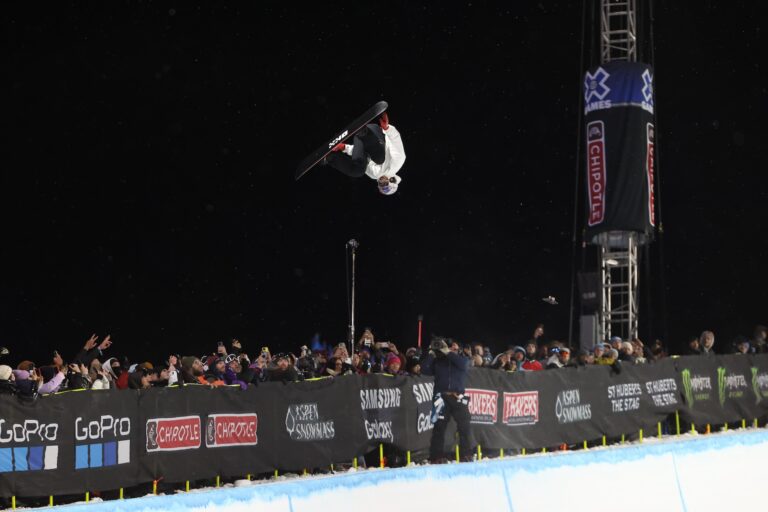There’s a phrase that’s frequently cited as ‘the most beautiful in the English language’: Cellar door. No, that’s not a typo. Cellar door. In a literal sense, there’s nothing special about it. It works purely in phonetic terms rather than conjuring up any vivid image. Still, there’s just something about the way it rolls off the tongue.
The same could be said of Korua Shapes. Any definition of the word comes up as blank as their immaculate, white topsheets. But you’ve got to admit, it does have a certain ring to it. “It kind of reminded us of an island, a beautiful island in the Mentawais, or an island with a palm on it,” Nicholas Wolken, Korua’s co-founder, tells me. “We tried a bunch of different names. We went through them all and we just liked the sound of it. It just matched.”
The inspiration for the snowboards themselves, however, originated much further from the equator, where it was the Shirakaba trees, not palms, that were native to the island. “I think what really kicked it off was one of the trips we did to Japan,” Wolken says. “We didn’t just witness different snowboards, but a whole scene and culture. A different approach to snowboarding.”
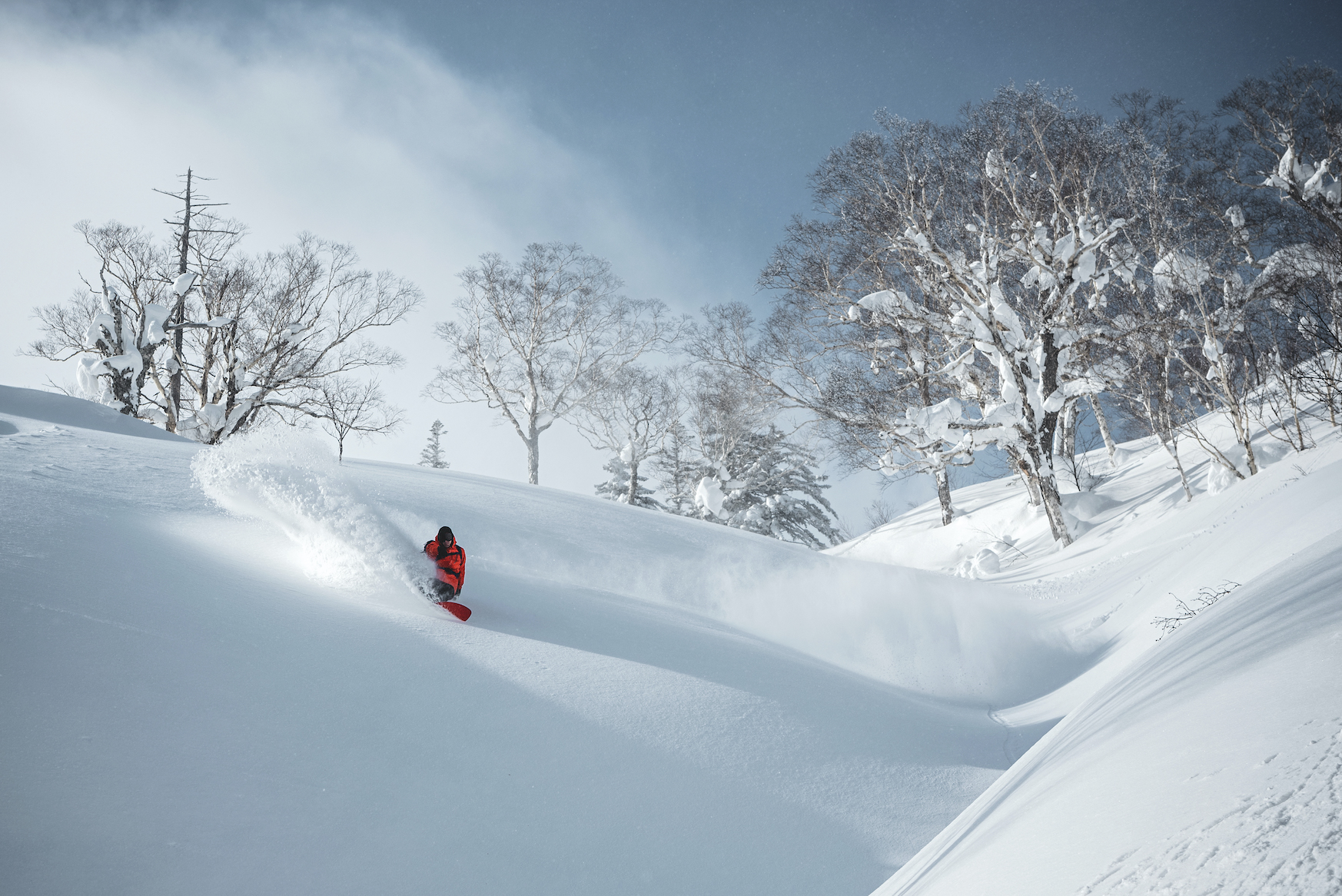
Back in 2013, there was little indication of the tides turning in Europe. Freestyle was firmly in the foreground, kickers were king, and carving was viewed as a pastime that possibly involved a set of hard boots and a series of gates. In Japan, however, it was snowsurfing and freecarving that had been riding a wave of popularity for some time.
“We didn’t just witness different snowboards, but a whole scene and culture. A different approach to snowboarding”
“We didn’t invent that,” Wolken stresses, “I want to credit those guys over there but we saw that it was possible in Japan, and it seemed there was nothing like it in Europe.” When the opportunity to start up a new brand presented itself, with Jerry Niedermeier in charge of product development, Wolken went into it “just totally open-minded.” By 2014, the first line of Korua Shapes snowboards was unveiled.


